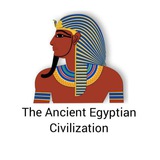The Supreme Council of Antiquities inspected the exhibition halls designated to receive the exhibition "Ramses and the Gold of the Pharaohs" at the Australian Museum in Sydney.The inspection aims at ensuring that the halls are equipped with security and precautionary equipments, and safe to receive the artefacts.
#AustralianMuseum
#AustralianMuseum
Niobe the daughter of Tantalus, king of Phrygia in Asia Minor, and wife of Amphion who founded the Greek city of Thebes and built its walls. The Greeks considered her a patroness of education and knowledge, and a goddess of Thebes. Niobe and Amphion had seven sons and seven daughters, all of them were of beauty and splendor, and Niobe always bragged about them, which provoked the jealousy and anger of the goddess Leto, the wife of Zeus, who only gave birth to Apollo and Artemis. Which lead Leto to plan a revenge on Niobe, where Apollo killed the boys and Artemis killed the girls; Niobe wept for the loss of her children, until she turned to rock over the Mount Sipylus.
Marble, 2nd century AD, loxur.Displayed in the National Museum of Egyptian Civilization in Fustat, Cairo.
#NMEC
Marble, 2nd century AD, loxur.Displayed in the National Museum of Egyptian Civilization in Fustat, Cairo.
#NMEC
Our Channel Ancient Egyptian Civilization Will stop for 3 Days Due to a Wifi problem,Thank You!
#Anouncement
#Anouncement
The purification tent of princess Isetemkheb II, Deir el Bahri Cache 1881, ca. 1046 – 1037 BC. Displayed in the National Museum of Egyptian Civilization in Cairo, Egypt.
#NMEC
#NMEC
The four torches for lighting that were found inside the tomb of the golden king "Tutankhamun", the torch holder, is made of bronze, and two human arms have been added to it.This Artifact will soon be displayed in the Grand Egyptian Museum in Giza, Egypt.
#GEM
#GEM
The Holy Ka'aba Key Bag. Green silk embroidered with serma, Ottoman period, reign of Sultan Al-Ghazi Abdul Majid Khan (1839-1861AD). Displayed in the National Museum of Egyptian Civilization in Cairo, Egypt.
#NMEC
#NMEC
A painted wooden figure of a female harpist late period (664-332 BC).Displayed in the British museum in London, England.
#TheBritishMuseum
#TheBritishMuseum
Wooden models found in the tombs of senior officials in the Mir region in central Egypt in the Assiut governorate, and they represent the various agricultural activities, one of which dates back to the Sixth Dynasty and represents a man hoeing the land, and another represents plowing and a third model for carrying grain. Displayed in the Egyptian Museum in Tahrir, Cairo.
#TheEgyptianMuseum
#TheEgyptianMuseum
Traditional Egyptian Clothes in different regions in Egypt.
